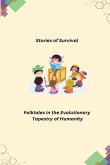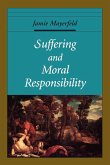Humanitarianism and Suffering
The Mobilization of Empathy
Herausgeber: Wilson, Richard A.; Brown, Richard D.
Humanitarianism and Suffering
The Mobilization of Empathy
Herausgeber: Wilson, Richard A.; Brown, Richard D.
- Gebundenes Buch
- Merkliste
- Auf die Merkliste
- Bewerten Bewerten
- Teilen
- Produkt teilen
- Produkterinnerung
- Produkterinnerung
The book shows how stories of suffering are created and their impact on global politics.
Andere Kunden interessierten sich auch für
![Stories of Survival Stories of Survival]() Stories of Survival31,99 €
Stories of Survival31,99 €![Suffering Life's Pain: Facing the Problems of Moral and Natural Evil Suffering Life's Pain: Facing the Problems of Moral and Natural Evil]() David W. GoodingSuffering Life's Pain: Facing the Problems of Moral and Natural Evil26,99 €
David W. GoodingSuffering Life's Pain: Facing the Problems of Moral and Natural Evil26,99 €![God, Evolution, and Animal Suffering God, Evolution, and Animal Suffering]() Bethany N SollerederGod, Evolution, and Animal Suffering202,99 €
Bethany N SollerederGod, Evolution, and Animal Suffering202,99 €![Suffering Life's Pain Suffering Life's Pain]() David W. GoodingSuffering Life's Pain20,99 €
David W. GoodingSuffering Life's Pain20,99 €![Contexts of Suffering Contexts of Suffering]() Kevin AhoContexts of Suffering67,99 €
Kevin AhoContexts of Suffering67,99 €![Suffering and Moral Responsibility Suffering and Moral Responsibility]() Jamie MayerfeldSuffering and Moral Responsibility65,99 €
Jamie MayerfeldSuffering and Moral Responsibility65,99 €![The Meaning of Suffering The Meaning of Suffering]() Adrian C. MoulynThe Meaning of Suffering104,99 €
Adrian C. MoulynThe Meaning of Suffering104,99 €
The book shows how stories of suffering are created and their impact on global politics.
Hinweis: Dieser Artikel kann nur an eine deutsche Lieferadresse ausgeliefert werden.
Hinweis: Dieser Artikel kann nur an eine deutsche Lieferadresse ausgeliefert werden.
Produktdetails
- Produktdetails
- Verlag: Cambridge University Press
- Seitenzahl: 330
- Erscheinungstermin: 9. Oktober 2012
- Englisch
- Abmessung: 235mm x 157mm x 22mm
- Gewicht: 630g
- ISBN-13: 9780521883856
- ISBN-10: 0521883857
- Artikelnr.: 23604618
- Herstellerkennzeichnung
- Libri GmbH
- Europaallee 1
- 36244 Bad Hersfeld
- gpsr@libri.de
- Verlag: Cambridge University Press
- Seitenzahl: 330
- Erscheinungstermin: 9. Oktober 2012
- Englisch
- Abmessung: 235mm x 157mm x 22mm
- Gewicht: 630g
- ISBN-13: 9780521883856
- ISBN-10: 0521883857
- Artikelnr.: 23604618
- Herstellerkennzeichnung
- Libri GmbH
- Europaallee 1
- 36244 Bad Hersfeld
- gpsr@libri.de
Part I. Histories and Contexts: 1. Mourning, pity, and the work of
narrative in the making of 'humanity' Thomas W. Laqueur; 2. Contemporary
humanitarianism: the global and the local contemporary David P. Forsythe;
3. Humanitarian reading Joseph R. Slaughter; 4. Global media and the myths
of humanitarian relief: the case of the 2004 tsunami Rony Brauman; 5. Hard
struggles of doubt: abolitionists and the problem of slave redemption
Margaret M. R. Kellow; 6. 'Starving Armenians': the politics and ideology
of humanitarian aid in the first decades of the twentieth century Flora A.
Keshgegian; 7. International bystanders to the Holocaust and humanitarian
intervention Michael R. Marrus; Part II. Narratives and Redress: 8.
Victims, relatives and citizens in Argentina: whose voice is legitimate
enough? Elizabeth Jelin; 9. Children, suffering and the humanitarian appeal
Laura Suski; 10. The physicality of legal consciousness: suffering and the
production of credibility in refugee resettlement Kristin Bergtora Sandvik;
11. 'Can you describe this?': human rights reports and what they tell us
about the human rights movement Ron Dudai; 12. Financial reparations, blood
money, and human rights witness testimony: Morocco and Algeria Susan
Slymovics; 13. Remnants and remains: narratives of suffering in
post-genocide Rwanda's Gacaca courts Lars Waldorf.
narrative in the making of 'humanity' Thomas W. Laqueur; 2. Contemporary
humanitarianism: the global and the local contemporary David P. Forsythe;
3. Humanitarian reading Joseph R. Slaughter; 4. Global media and the myths
of humanitarian relief: the case of the 2004 tsunami Rony Brauman; 5. Hard
struggles of doubt: abolitionists and the problem of slave redemption
Margaret M. R. Kellow; 6. 'Starving Armenians': the politics and ideology
of humanitarian aid in the first decades of the twentieth century Flora A.
Keshgegian; 7. International bystanders to the Holocaust and humanitarian
intervention Michael R. Marrus; Part II. Narratives and Redress: 8.
Victims, relatives and citizens in Argentina: whose voice is legitimate
enough? Elizabeth Jelin; 9. Children, suffering and the humanitarian appeal
Laura Suski; 10. The physicality of legal consciousness: suffering and the
production of credibility in refugee resettlement Kristin Bergtora Sandvik;
11. 'Can you describe this?': human rights reports and what they tell us
about the human rights movement Ron Dudai; 12. Financial reparations, blood
money, and human rights witness testimony: Morocco and Algeria Susan
Slymovics; 13. Remnants and remains: narratives of suffering in
post-genocide Rwanda's Gacaca courts Lars Waldorf.
Part I. Histories and Contexts: 1. Mourning, pity, and the work of
narrative in the making of 'humanity' Thomas W. Laqueur; 2. Contemporary
humanitarianism: the global and the local contemporary David P. Forsythe;
3. Humanitarian reading Joseph R. Slaughter; 4. Global media and the myths
of humanitarian relief: the case of the 2004 tsunami Rony Brauman; 5. Hard
struggles of doubt: abolitionists and the problem of slave redemption
Margaret M. R. Kellow; 6. 'Starving Armenians': the politics and ideology
of humanitarian aid in the first decades of the twentieth century Flora A.
Keshgegian; 7. International bystanders to the Holocaust and humanitarian
intervention Michael R. Marrus; Part II. Narratives and Redress: 8.
Victims, relatives and citizens in Argentina: whose voice is legitimate
enough? Elizabeth Jelin; 9. Children, suffering and the humanitarian appeal
Laura Suski; 10. The physicality of legal consciousness: suffering and the
production of credibility in refugee resettlement Kristin Bergtora Sandvik;
11. 'Can you describe this?': human rights reports and what they tell us
about the human rights movement Ron Dudai; 12. Financial reparations, blood
money, and human rights witness testimony: Morocco and Algeria Susan
Slymovics; 13. Remnants and remains: narratives of suffering in
post-genocide Rwanda's Gacaca courts Lars Waldorf.
narrative in the making of 'humanity' Thomas W. Laqueur; 2. Contemporary
humanitarianism: the global and the local contemporary David P. Forsythe;
3. Humanitarian reading Joseph R. Slaughter; 4. Global media and the myths
of humanitarian relief: the case of the 2004 tsunami Rony Brauman; 5. Hard
struggles of doubt: abolitionists and the problem of slave redemption
Margaret M. R. Kellow; 6. 'Starving Armenians': the politics and ideology
of humanitarian aid in the first decades of the twentieth century Flora A.
Keshgegian; 7. International bystanders to the Holocaust and humanitarian
intervention Michael R. Marrus; Part II. Narratives and Redress: 8.
Victims, relatives and citizens in Argentina: whose voice is legitimate
enough? Elizabeth Jelin; 9. Children, suffering and the humanitarian appeal
Laura Suski; 10. The physicality of legal consciousness: suffering and the
production of credibility in refugee resettlement Kristin Bergtora Sandvik;
11. 'Can you describe this?': human rights reports and what they tell us
about the human rights movement Ron Dudai; 12. Financial reparations, blood
money, and human rights witness testimony: Morocco and Algeria Susan
Slymovics; 13. Remnants and remains: narratives of suffering in
post-genocide Rwanda's Gacaca courts Lars Waldorf.








